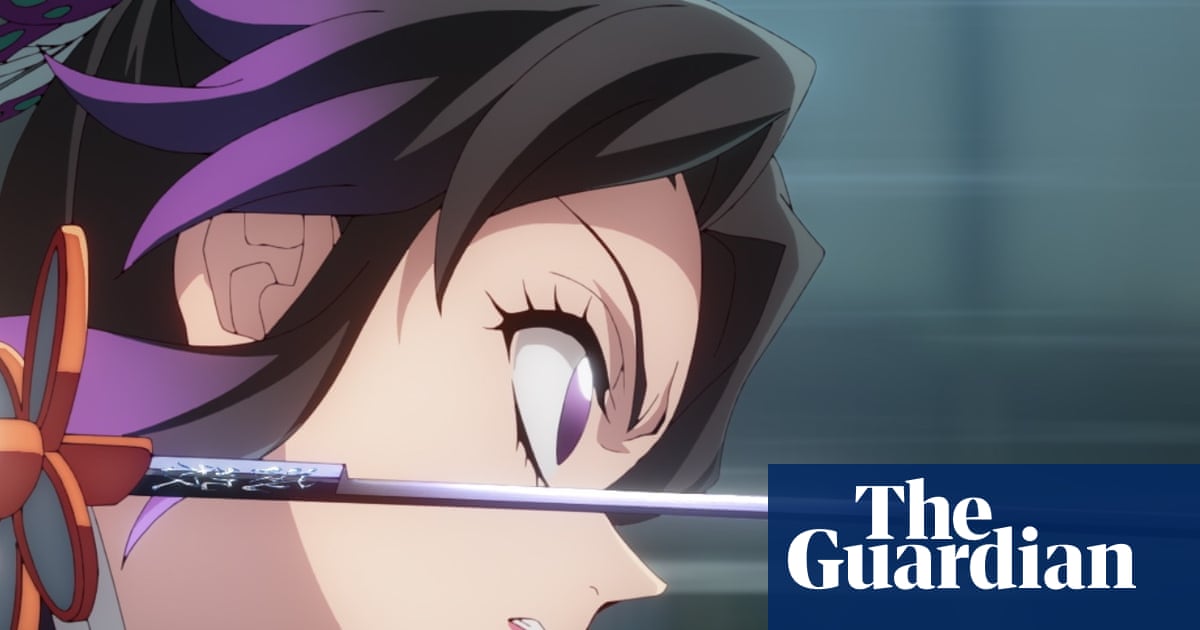Julia Jackman has followed Bonus Track with this queer fantasy-fable that has a streak of earnestness to go with the romantasy energy and gorgeous costumes from designer Susie Coulthard. It’s adapted by Jackman from Isabel Greenberg’s 2016 graphic novel of the same title, and inspired generally by Scheherazade and the One Thousand and One Nights – and also I think by Julie Dash, Peter Greenaway and maybe the theatricality of Agnès Varda’s One Hundred and One Nights. Emma Corrin and Maika Monroe star, with Nicholas Galitzine and Amir El-Masry in support; Charli xcx makes an appearance, and there’s also a tiny intriguing cameo for critic Sophie Monks Kaufman. It adds up to a likable movie, a little fey but unexpectedly subtle – although the meta-level of storytelling sometimes has for me the disconcerting effect of halting and dissipating the all-important narrative energy.
We are in a fairytale medieval world created by the god Birdman (Richard E Grant). Or rather, a world envisioned originally as a gender-coeval utopia by his daughter Kiddo (Safia Oakley-Green), but then spoiled by Birdman in a fit of sexist pique. In this place, women are not allowed to read or write but they are allowed to tell stories, and it is this skill that distinguishes the maidservant Hero (Corrin), who waits upon the shy, melancholy noblewoman Cherry (Monroe), and has become her intimate best friend.
Cherry’s boorish husband Jerome (El-Masry) has failed to get her pregnant and is nettled by a claim from his womanising friend Manfred (Galitzine) that he could seduce Cherry if he felt like it. So Jerome challenges him to do it as a bet in the next hundred days while he goes away “on business”. It becomes Hero’s task to distract Manfred with superb stories, so gripping that they will bewitch, bother and bewilder him away from his urges. But are Jerome’s motives more complex than they appear?
Galitzine’s Manfred is a smug and tiresome figure who patronisingly calls Hero “a woman of many talents”, although this is not precisely how the non-binary Corrin portrays the character. He does, however, achieve something almost like a beauty-and-the-beast sympathy as he pursues Cherry – but it is Hero who has the stronger claim on Cherry’s innocent heart, not merely with storytelling but with erotic role play, as she demonstrates what Cherry could expect from a truly amorous suitor. Gender, sexuality, status and power are all in flux here, a playful effect that is however withdrawn when we arrive at the sacrificial seriousness. It is a sweet tale which floats self-consciously out of the screen.

 2 months ago
66
2 months ago
66

















































